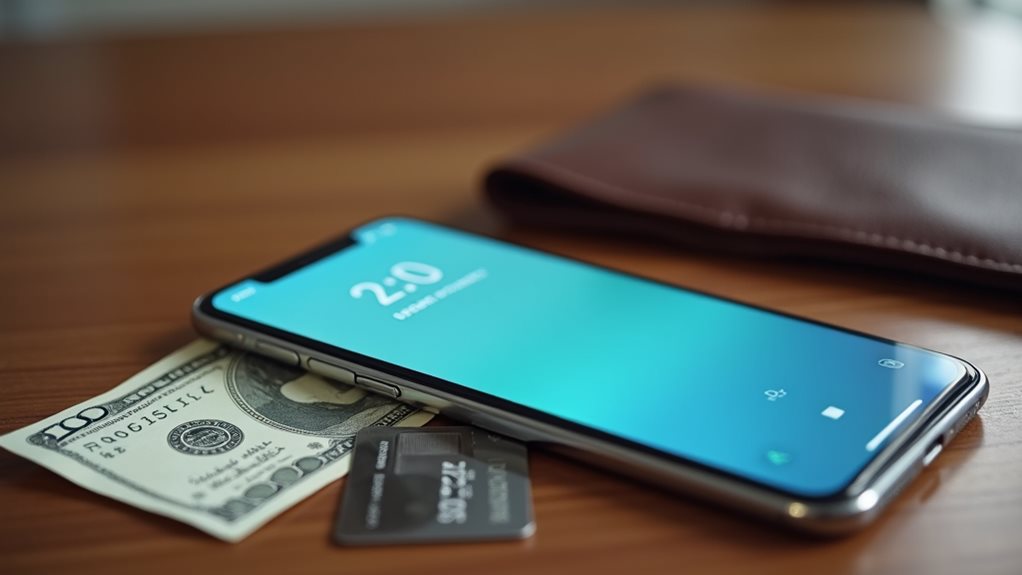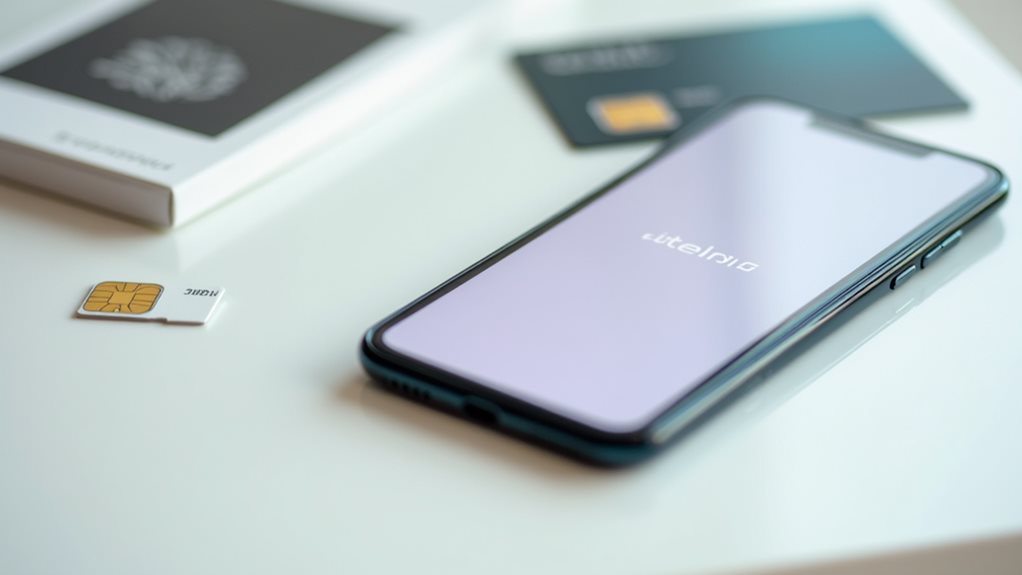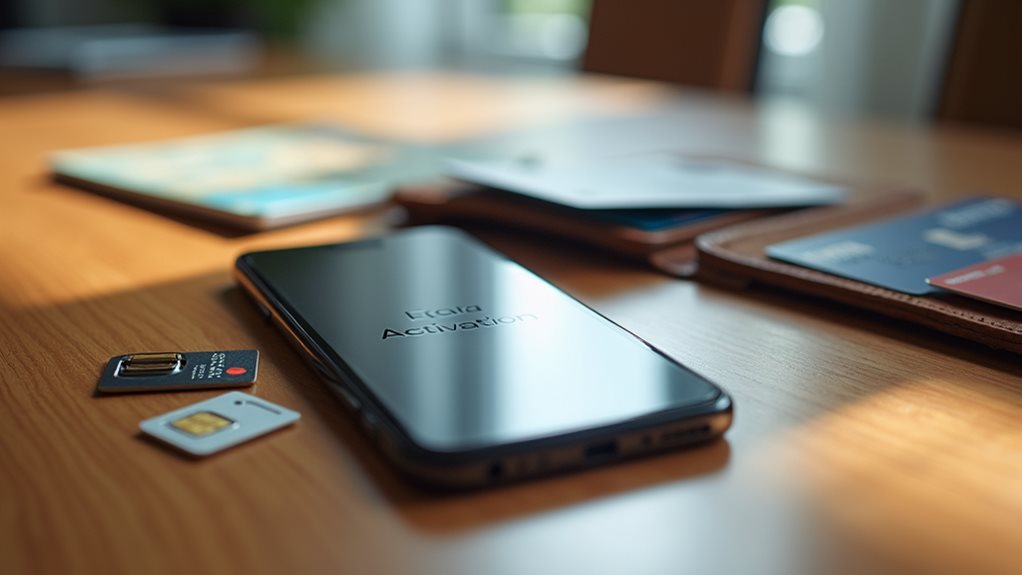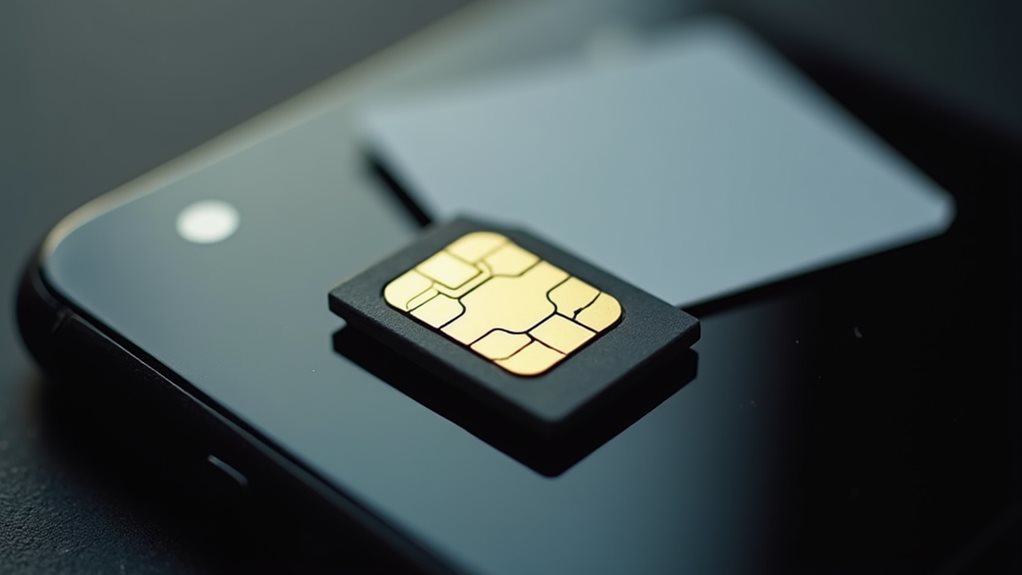To get a new non-VoIP number, you'll need to choose between traditional carriers like AT&T and Verizon or mobile virtual network operators (MVNOs). Start by researching providers' plans, comparing both prepaid and postpaid options based on your budget and needs. Visit a store or website to purchase a SIM card, then complete the activation process with your identification documents. You'll typically pay between $5-15 monthly, with initial setup costs ranging from $0.10-$1 per number. Consider factors like call quality, customer service ratings, and available features when selecting your provider. There's much more to explore about maximizing your non-VoIP number's potential.
Understanding Non-VoIP Phone Numbers
In today's digital age, non-VoIP phone numbers stand apart from internet-based calling solutions by operating through traditional telecommunication networks. When you're looking to establish a reliable communication system, understanding Non VoIP advantages becomes essential for making an informed decision.
These numbers are physically assigned to specific phones or SIM cards and are linked to geographical areas, providing you with a stable, location-based identity. Unlike virtual numbers, non-VoIP requires a physical line connection and can be a critical asset for organizations prioritizing non-VoIP security.
The key Non VoIP features you'll benefit from include enhanced security against fraud and hacking, consistent service quality that doesn't depend on internet connectivity, and superior emergency services access. Non-VoIP numbers are widely trusted by critical business sectors like law firms and medical practices.
You'll find that these numbers come in two main forms: landline numbers running through copper wire networks and mobile numbers operating via cellular networks.
What makes them particularly valuable is their ability to maintain clear voice quality without internet reliance, while offering standard calling features you can count on. This reliability makes them essential for individuals and businesses that rely on consistent communication without service interruptions.
For local businesses and professionals seeking to build trust with their community, the geographic significance of non-VoIP numbers creates an immediate connection with customers in specific area codes, reinforcing your presence in the local market.
Benefits of Non-VoIP Numbers
When you're looking to protect your business identity and secure your communications, a non-VoIP number provides exceptional safeguards against potential security threats.
Unlike VoIP systems that rely on internet transmission, traditional non-VoIP numbers operate independently of internet connectivity.
Non-VoIP numbers deliver consistent call quality through traditional networks, ensuring your business conversations remain clear and professional.
You'll benefit from advanced encryption protocols and carrier-grade security measures that make it considerably harder for cybercriminals to intercept your calls or messages.
Your business communications will remain protected through built-in security features that traditional telephone networks offer, including fraud prevention systems and real-time threat monitoring.
Enhanced Security Measures
Through enhanced security features and robust authentication methods, non-VoIP numbers offer significant advantages over their VoIP counterparts. You'll benefit from reliable message delivery and stronger protection against fraud, making these numbers an essential tool for safeguarding your personal information.
When you're using non-VoIP numbers, you're joining a community of security-conscious individuals who understand the importance of protecting their digital presence. These numbers provide strong two-factor authentication capabilities across a wide range of online services. Many online platforms actively block VoIP numbers during their verification processes. Non-VoIP numbers are often preferred for their greater acceptance on various platforms, ensuring a smoother account verification experience.
What makes these numbers particularly secure is their connection to physical locations and actual mobile devices. You're getting a number that's harder to hack and spoof, which is vital in today's digital landscape where cybersecurity threats are ever-present.
The geographical significance of non-VoIP numbers adds another layer of security that you won't find with standard VoIP options.
For online verification processes, you'll appreciate how non-VoIP numbers provide consistent reliability and universal access. Whether you're protecting your business or personal accounts, these numbers guarantee you're meeting regulatory requirements while maintaining high security standards. Additionally, they offer flexible rental options, allowing users to adjust their needs without compromising on security or rising expenses.
Business Identity Protection
Many businesses are discovering that non-VoIP numbers serve as a powerful shield for their corporate identity. When you're establishing your online presence, you'll find that these numbers provide an essential layer of protection that helps authenticate your business and build lasting trust with customers.
Your business identity becomes more credible when it's linked to a non-VoIP number, as these numbers require physical verification and geographic association. You'll notice that customers respond more positively to businesses with traditional phone numbers, recognizing them as established entities rather than temporary operations. The prompt SMS delivery ensures seamless verification processes for your business transactions. Unlike VoIP services which can cost around $20 per user, traditional phone numbers often require higher initial investment. Additionally, using a non-VoIP number allows businesses to benefit from advanced features that VoIP numbers may lack.
With enhanced caller ID features and CNAM data integration, you're presenting a professional image that competitors using VoIP services can't match. The verification process for non-VoIP numbers helps protect you from potential fraud while ensuring regulatory compliance.
You're not just getting a phone number; you're investing in a secure communication channel that validates your company's legitimacy. This protection extends beyond basic security measures, offering you stable connections and reliable service that aren't dependent on internet availability, ultimately safeguarding your reputation in today's competitive business landscape.
Top Apps for Non-VoIP Numbers

Finding a reliable non-VoIP number app can greatly enhance your communication privacy and security. When you're exploring options, evaluate apps with strong user reviews and a seamless user experience that align with your communication needs. These apps should prioritize security and privacy features to ensure your information remains protected.
The stability of non-VoIP numbers provides consistent communication quality even in areas with poor internet connectivity. These solutions offer a cost-effective alternative to maintaining physical phone lines, making them a practical choice for both individuals and businesses.
Here are the top-rated non-VoIP number apps you'll want to evaluate:
- Google Voice – Perfect for those seeking a free solution with US and Canada calling, plus it's backed by Google's reliable infrastructure.
- Hushed – Ideal if you need temporary numbers with robust privacy features and flexible duration options.
- Line2 – Excellent for business users who want professional features like call forwarding and custom voicemail, ensuring streamlined communications and enhanced customer trust.
- Sideline – Great for maintaining separate personal and business lines with advanced calling features.
Each of these apps offers unique advantages for different user needs. While Google Voice stands out for its free service and integration with other Google products, Hushed excels in privacy protection.
Line2 and Sideline are particularly valuable for business users who need professional features without maintaining separate phone lines. Evaluate your specific requirements when choosing, as these apps vary in pricing, features, and availability in different regions.
Step-by-Step Number Acquisition Process
Securing a non-VoIP number requires a systematic approach to guarantee you get a reliable and verified phone line.
You'll want to start by researching traditional providers like AT&T, Verizon, or cost-effective MVNOs that offer number portability and reliable service.
Once you've chosen your provider, you'll need to decide between prepaid or postpaid plans that fit your budget and usage needs.
Head to a physical store or visit the provider's website to purchase a SIM card and begin the SIM activation process. You'll need to provide personal information for security purposes, so have your identification ready.
During activation, verify that your chosen number works with SMS verification services and meets your specific requirements.
Many providers will ask you to complete a verification step to confirm you're the legitimate user.
Don't forget to inquire about number portability if you plan to switch carriers in the future.
Once you've submitted all necessary documentation and completed the activation steps, test your new number by making a call or sending a text to confirm everything's working properly.
Additionally, consider the cost efficiency offered by various providers, which can significantly impact your budget for communication services.
You're now ready to use your non-VoIP number for all your verification needs.
Costs and Pricing Options

The costs for non-VoIP numbers vary greatly across providers and service types. You'll find basic pricing ranging from $0.10 to $1 per number, though you'll want to watch out for hidden fees that can greatly impact your total expenses.
Understanding different pricing strategies helps you make an informed decision that aligns with your needs and budget.
When exploring your options, consider these key cost factors:
- Monthly base rates: Local numbers start at $5, while toll-free and international numbers can reach $15.
- Additional features: Call recording and software packages range from $5 to $100 monthly.
- Bulk purchase discounts: Major savings when acquiring multiple numbers.
- Long-term rental benefits: Better rates compared to short-term commitments.
You'll find the most cost-effective solutions through online providers offering fixed-price rentals and no-contract plans. Reputable providers often enable users to select from a variety of options tailored to their specific needs.
If you're looking for established service, traditional telcos like AT&T and T-Mobile charge premium rates but provide reliable connectivity.
Consider prepaid plans if you want to maintain control over expenses without credit checks or long-term commitments.
Remember to factor in any add-ons or packages that might increase your monthly costs.
Choosing the Right Provider
When you're looking for a non-VoIP provider, you'll want to research their reliability record, including uptime statistics and customer satisfaction ratings.
You should thoroughly compare service features across multiple providers, focusing on those that match your specific needs for call quality, number selection, and technical support.
Take time to read reviews from current customers and check industry ratings, as these insights will help you make an informed decision about a provider's true performance and dependability. Additionally, consider the potential for cost savings that comes from evaluating various communication options, as VoIP can significantly reduce traditional phone service expenses.
Research Provider Reliability
Choosing a reliable provider stands as your most essential step in obtaining a new non-VoIP number. When conducting your provider comparison, you'll want to evaluate several key factors that indicate service reliability. Think of this research as joining an exclusive club where quality and dependability matter most.
To guarantee you're making the right choice, focus on these critical aspects:
- Examine the provider's reputation through customer reviews and industry standings, paying special attention to their track record of uptime and service consistency.
- Verify their security measures and data protection policies, ensuring they meet current industry standards and regulations.
- Assess their customer support infrastructure, including response times and available communication channels.
- Review their pricing transparency and billing practices to avoid unexpected costs.
You'll want to look for providers who maintain robust network infrastructure and regular technology updates. Additionally, selecting a provider with a proven record of 99.9% uptime can significantly enhance your communication reliability.
Don't hesitate to request information about their compliance certifications and third-party audit results.
Remember, a provider's willingness to share this information often indicates their commitment to transparency and customer service.
Compare Service Features
Four essential service features demand your attention when comparing non-VoIP providers. When conducting your service comparisons, focus on call routing capabilities, voicemail management, integration options, and scalability potential.
You'll want to verify your chosen provider can direct calls efficiently to specific departments while offering straightforward voicemail retrieval and transcription services.
During your feature evaluations, pay special attention to how well each service integrates with your existing business tools. The right provider should offer seamless connectivity with your current platforms, making daily operations smoother for your team.
Additionally, consider the provider's mobile app support, as you'll likely need to manage calls and settings on the go. Look for robust mobile applications that give you full access to your communication system from anywhere.
Remember that your business needs may evolve, so choose a provider that offers room for growth. The ideal service should allow you to easily add new lines, expand features, and adjust call routing patterns as your organization expands, without requiring a complete system overhaul or migration to a different provider. Advanced communication features can also enhance your operational efficiency, making your decision even more impactful.
Setting Up Your Number

The journey to activate your new non-VoIP number involves several essential steps that'll set you up for success.
Whether you're choosing a traditional carrier or exploring MVNO options, understanding the activation process and number portability features will make your setup smoother and more efficient.
Begin by visiting your chosen provider's store or website to acquire a SIM card and select your preferred plan.
You'll need to complete these vital steps:
- Register your personal information for security and legal compliance
- Choose between prepaid or postpaid plans based on your usage patterns
- Verify your identity through the provider's required documentation
- Complete any necessary phone or email verification steps
Once you've submitted your information, your provider will guide you through the final activation steps.
Configure your phone settings according to the carrier's specifications, ensuring everything's properly set up for calls and messages.
If you're switching from another service, inquire about porting your existing number to maintain continuity. Additionally, it's important to note that, unlike VoIP systems, traditional numbers rely on dedicated copper lines to connect calls.
Security and Privacy Features
When prioritizing security and privacy, non-VoIP numbers stand out as a robust solution for protecting your digital identity. These numbers offer considerable security advantages through physical SIM cards and traditional cellular networks, making them less vulnerable to hacking attempts and data breaches compared to their VoIP counterparts.
You'll benefit from enhanced privacy safeguards that come with non-VoIP numbers, including geographic-specific linking and seamless integration with emergency services. Your sensitive information remains protected through reliable SMS verification processes, while the cellular network infrastructure guarantees consistent call quality without depending on internet connectivity.
What's particularly reassuring is the thorough protection you'll receive against spam and fraudulent activities. Your non-VoIP number acts as a shield for online transactions and account verifications, greatly reducing the risk of unauthorized access.
You'll join countless others who've found peace of mind knowing their personal data is safeguarded by regulatory-compliant technology. Whether you're managing personal communications or business operations, these security features guarantee you're well-protected while maintaining the flexibility to connect globally through a trusted, stable network.
Best Practices for Usage

Successful implementation of non-VoIP numbers relies on following proven best practices that maximize their effectiveness. Across various usage scenarios, users have consistently reported better results when implementing strategic approaches to number management. User testimonials highlight the importance of maintaining professional standards while protecting personal privacy.
To optimize your non-VoIP number experience, follow these essential guidelines:
- Keep your professional and personal communications separate by dedicating your non-VoIP number exclusively to business activities.
- Create a professional voicemail greeting that enhances credibility and builds trust with contacts.
- Display your non-VoIP number prominently on business materials to establish legitimacy.
- Monitor usage patterns to prevent spam and maintain service quality.
When you're engaging in online marketplaces or conducting remote work, it's vital to understand your number's limitations while maximizing its benefits.
Consider implementing a systematic approach to number management, such as maintaining separate lines for different business activities. By following these practices, you'll not only protect your personal information but also establish a more professional presence in your digital communications.
Remember to regularly review and adjust your usage patterns based on your evolving needs and experiences.
Frequently Asked Questions
Can I Transfer My Existing Number to a Non-Voip Service?
Yes, you can transfer your existing number to a non-VoIP service. Thanks to number portability options, you'll be able to switch between VoIP vs non-VoIP providers while keeping your familiar phone number.
How Long Does It Take to Activate a Non-Voip Number?
You'll get your number activation quickly, typically within minutes if you're using digital providers. The activation timeframe can vary, but you won't wait long to join others using non-VoIP services.
What Happens to My Messages if I Switch Between Non-Voip Providers?
Your messages can stay intact during non-VoIP provider switches thanks to message retention policies. Once number portability is complete, you'll typically maintain access to your communication history through your new provider's platform.
Are Non-Voip Numbers Compatible With International Roaming Services?
You'll face limitations with non-VoIP compatibility during international roaming since these numbers are tied to specific geographical locations. You're better off using VoIP services for seamless global connectivity while traveling abroad.
Can Multiple Devices Share the Same Non-Voip Number Simultaneously?
You can share your non-VoIP number across multiple devices, but device compatibility is limited. Most carriers allow shared usage on up to 5 phones, though you'll need to pay additional monthly fees per device.
Final Thoughts
Obtaining a non-VoIP number doesn't have to be complicated. You'll find that trusted providers like Google Voice, TextNow, and major carriers offer reliable solutions that fit your needs. Remember to verify the provider's legitimacy, compare pricing plans, and guarantee proper security measures are in place. By following the steps outlined and maintaining best practices, you'll have a functional non-VoIP number that serves your communication needs securely and efficiently.

